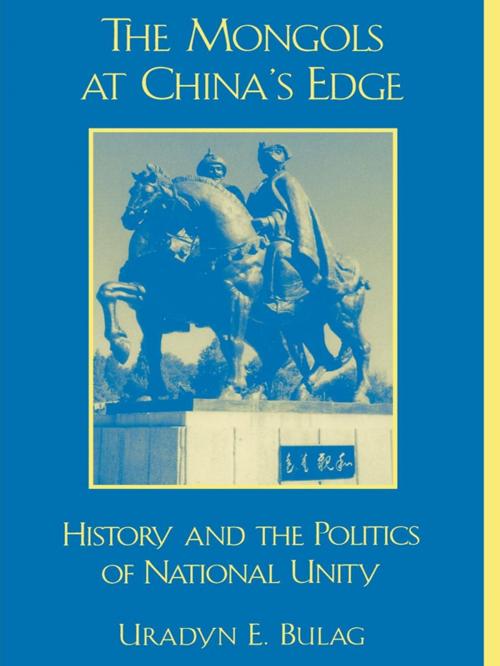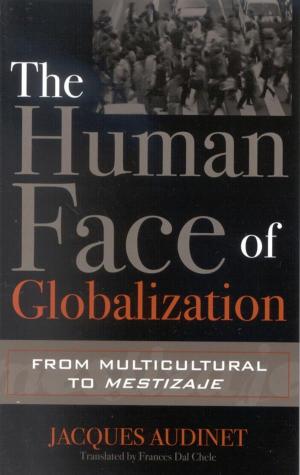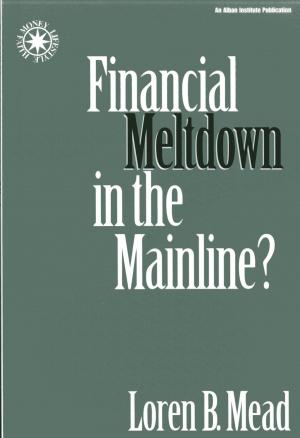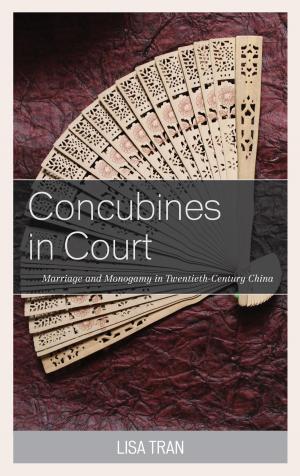The Mongols at China's Edge
History and the Politics of National Unity
Nonfiction, Social & Cultural Studies, Political Science, Government, Social Policy| Author: | Uradyn E. Bulag | ISBN: | 9781461644835 |
| Publisher: | Rowman & Littlefield Publishers | Publication: | April 3, 2002 |
| Imprint: | Rowman & Littlefield Publishers | Language: | English |
| Author: | Uradyn E. Bulag |
| ISBN: | 9781461644835 |
| Publisher: | Rowman & Littlefield Publishers |
| Publication: | April 3, 2002 |
| Imprint: | Rowman & Littlefield Publishers |
| Language: | English |
This important study explores the multifaceted Mongol experience in China, past and present. Combining insights from anthropology, history, and postcolonial criticism, Uradyn Bulag avoids romanticizing Mongols either as pacified primitive Other or as gallant resistance fighters. Rather, he portrays them as a people whose communist background and standing in China's northern borderlands has informed their political efforts to harness or confront Chinese nationalistic and political hegemony. Breaking new ground in the study of Chinese and Mongol history and ethnicity, the author offers a fresh interpretation of China viewed from the perspective of its peripheries, and of minority nationalities in relation to the study of Chinese representation and minority self-representation. The author interrogates received wisdom about Chinese and minority nationalism by unraveling the Chinese discourse and practice of 'national unity.' He shows how the discourse was constructed over time through political rituals and sexuality in relation to Mongols and other non-Chinese peoples that hark back to Chinese-Xiongnu confrontations two millennia ago and Manchu conquest in the 17th and 18th centuries. Titular rulers of an autonomous region in which they constitute a minority, Mongols face enormous barriers in building and maintaining a socialist Mongolian nationality and a Mongolian language and culture. Acknowledging these difficulties, Bulag discusses a range of sensitive issues including the imbrication of nation, class, and ethnicity in the context of Mongol-Chinese relations, tensions inherent in writing a postrevolutionary history for a socialist nationality, and the moral dilemma of building a socialist model with Mongol characteristics. Charting the interface between a state-centered multinational Chinese polity and a primordial nationalist multiculturalism that aims to manage minority nationalities as 'cultures,' he explores Mongol ethnopolitical strategies to preserve their heritage.
This important study explores the multifaceted Mongol experience in China, past and present. Combining insights from anthropology, history, and postcolonial criticism, Uradyn Bulag avoids romanticizing Mongols either as pacified primitive Other or as gallant resistance fighters. Rather, he portrays them as a people whose communist background and standing in China's northern borderlands has informed their political efforts to harness or confront Chinese nationalistic and political hegemony. Breaking new ground in the study of Chinese and Mongol history and ethnicity, the author offers a fresh interpretation of China viewed from the perspective of its peripheries, and of minority nationalities in relation to the study of Chinese representation and minority self-representation. The author interrogates received wisdom about Chinese and minority nationalism by unraveling the Chinese discourse and practice of 'national unity.' He shows how the discourse was constructed over time through political rituals and sexuality in relation to Mongols and other non-Chinese peoples that hark back to Chinese-Xiongnu confrontations two millennia ago and Manchu conquest in the 17th and 18th centuries. Titular rulers of an autonomous region in which they constitute a minority, Mongols face enormous barriers in building and maintaining a socialist Mongolian nationality and a Mongolian language and culture. Acknowledging these difficulties, Bulag discusses a range of sensitive issues including the imbrication of nation, class, and ethnicity in the context of Mongol-Chinese relations, tensions inherent in writing a postrevolutionary history for a socialist nationality, and the moral dilemma of building a socialist model with Mongol characteristics. Charting the interface between a state-centered multinational Chinese polity and a primordial nationalist multiculturalism that aims to manage minority nationalities as 'cultures,' he explores Mongol ethnopolitical strategies to preserve their heritage.















